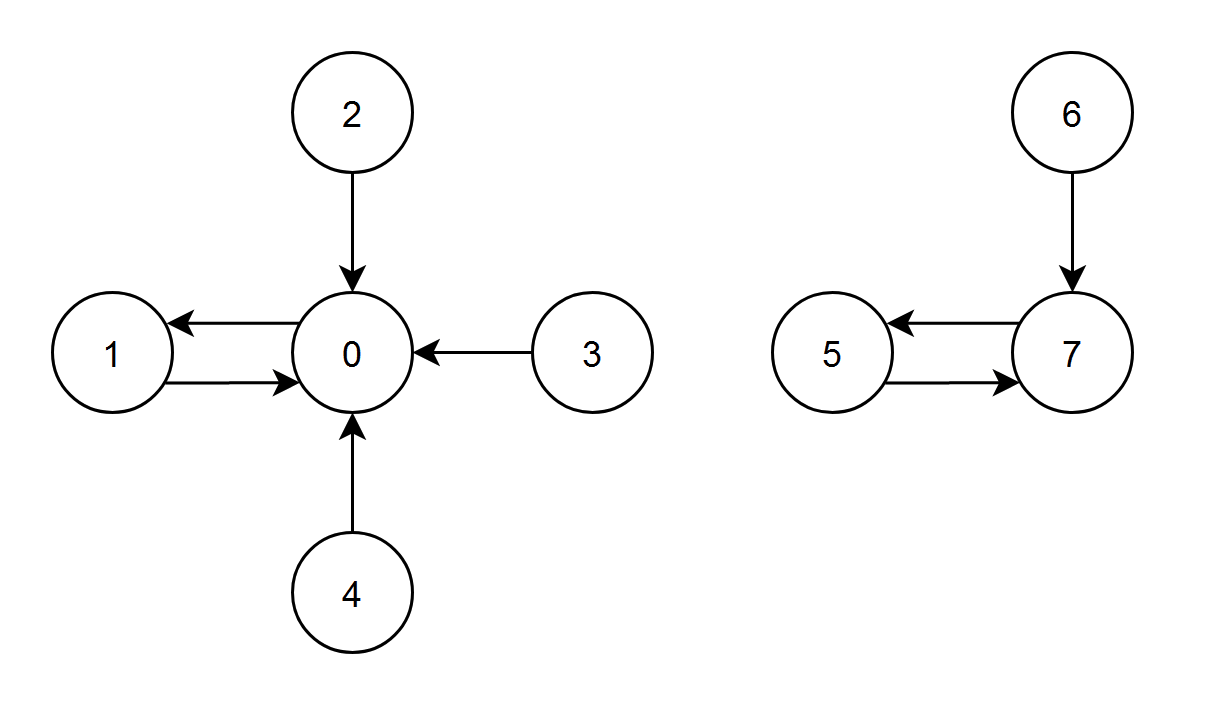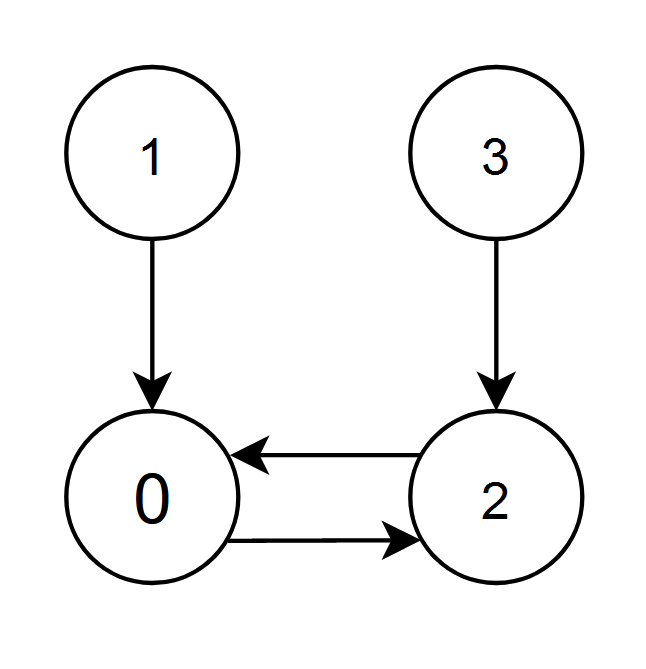Problem
You are given a directed graph with n nodes labeled from 0 to n - 1, where each node has exactly one outgoing edge.
The graph is represented by a given 0-indexed integer array edges of length n, where edges[i] indicates that there is a directed edge from node i to node edges[i].
The edge score of a node i is defined as the sum of the labels of all the nodes that have an edge pointing to i.
Return **the node with the highest *edge score***. If multiple nodes have the same *edge score*, return the node with the *smallest* index.
Example 1:

Input: edges = [1,0,0,0,0,7,7,5]
Output: 7
Explanation:
- The nodes 1, 2, 3 and 4 have an edge pointing to node 0. The edge score of node 0 is 1 + 2 + 3 + 4 = 10.
- The node 0 has an edge pointing to node 1. The edge score of node 1 is 0.
- The node 7 has an edge pointing to node 5. The edge score of node 5 is 7.
- The nodes 5 and 6 have an edge pointing to node 7. The edge score of node 7 is 5 + 6 = 11.
Node 7 has the highest edge score so return 7.
Example 2:

Input: edges = [2,0,0,2]
Output: 0
Explanation:
- The nodes 1 and 2 have an edge pointing to node 0. The edge score of node 0 is 1 + 2 = 3.
- The nodes 0 and 3 have an edge pointing to node 2. The edge score of node 2 is 0 + 3 = 3.
Nodes 0 and 2 both have an edge score of 3. Since node 0 has a smaller index, we return 0.
Constraints:
n == edges.length2 <= n <= 10^50 <= edges[i] < nedges[i] != i
Solution (Java)
class Solution {
public int edgeScore(int[] edges) {
int n = edges.length;
int[] score = new int[n];
int maxScore = 0;
int node = 0;
for (int i = 0; i < n; i++) {
score[edges[i]] += i;
if (score[edges[i]] >= maxScore) {
if (score[edges[i]] == maxScore) {
node = Math.min(node, edges[i]);
} else {
node = edges[i];
}
maxScore = score[edges[i]];
}
}
return node;
}
}
Explain:
nope.
Complexity:
- Time complexity : O(n).
- Space complexity : O(n).